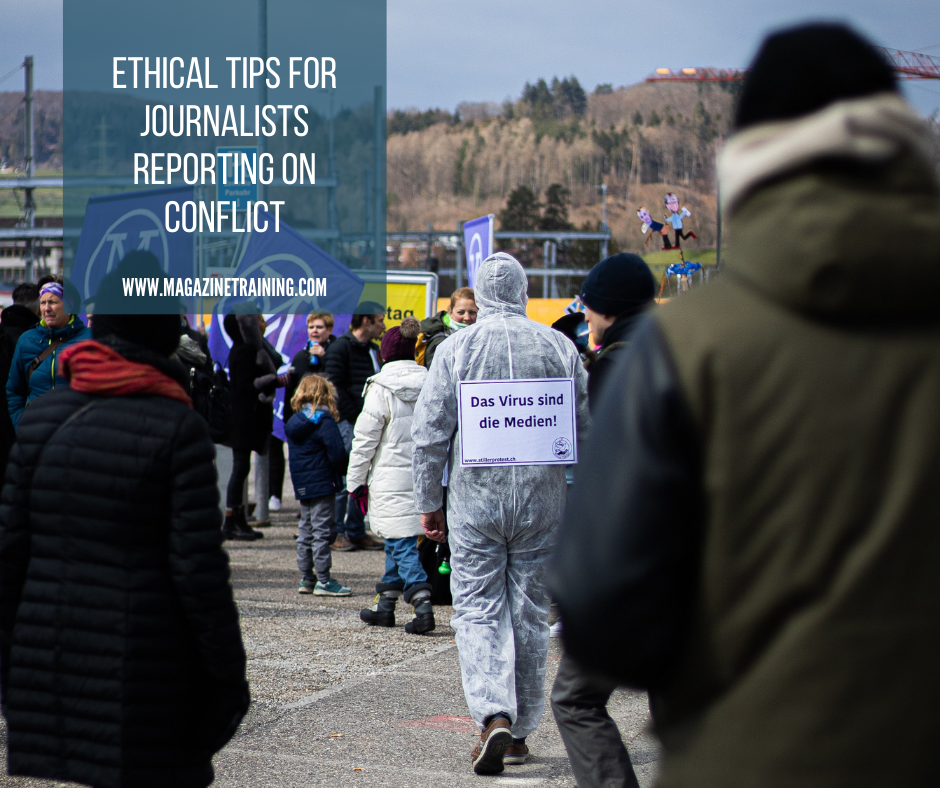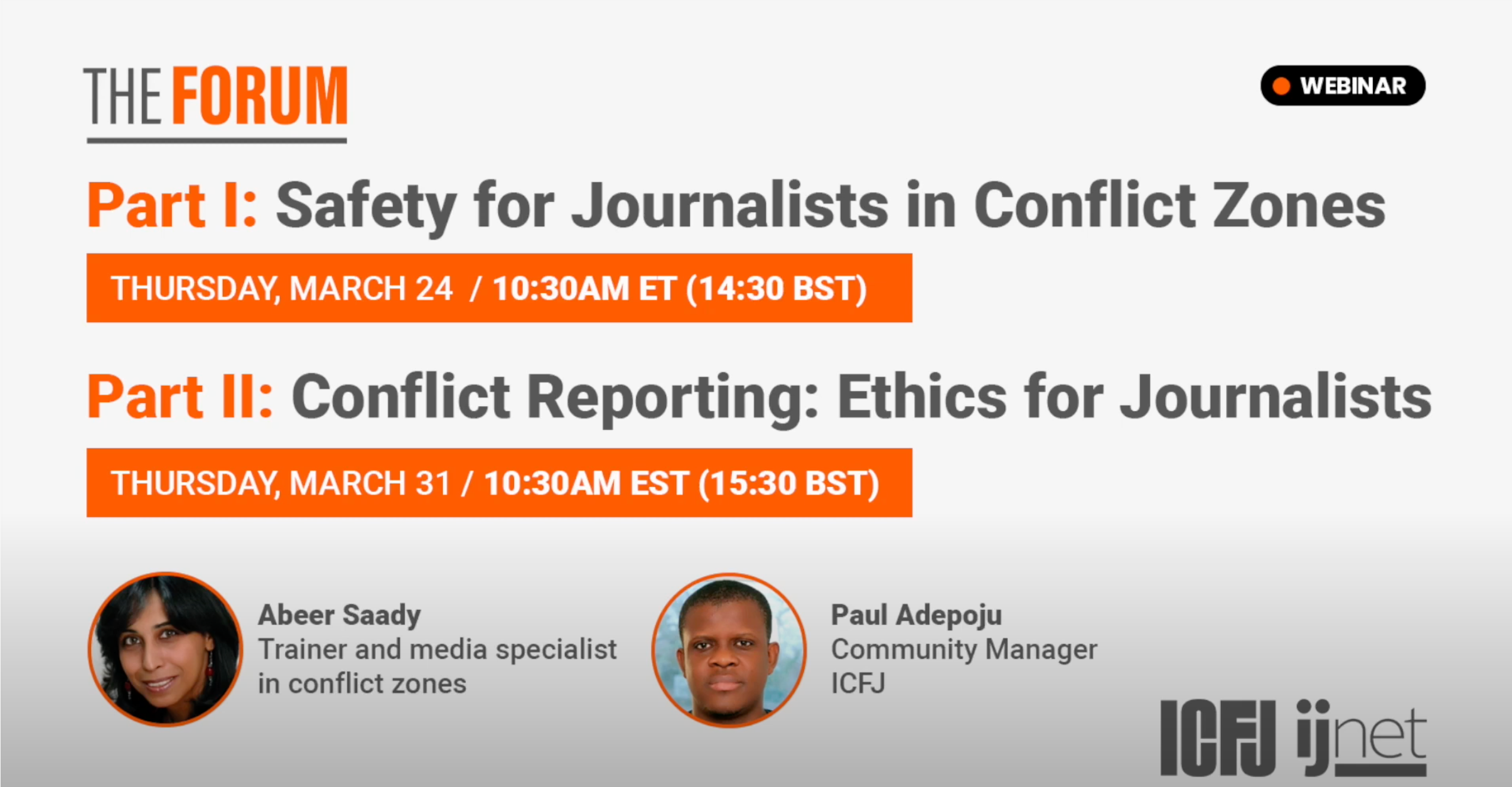
With Russia’s invasion of Ukraine entering its third month, the work of journalists continues to be instrumental in informing the world on alleged war crimes and civilian suffering. While covering the events in Ukraine – as well as other conflicts where journalists are at risk, from Afghanistan to Yemen – reporters need to know both hard safety skills and the complex ethical considerations unique to reporting on conflicts.
Abeer Saady, a war correspondent and conflict media specialist, who has over 27 years of experience reporting in conflict zones, recently shared ethical rules for covering conflicts during the second part of ICFJ Global Crisis Reporting Forum’s two-part webinar series on reporting in conflict zones.

Covering armed groups
Whether embedded within a military unit or reporting in an area controlled by armed groups, knowing the relationship between these actors and journalists is the first thing any reporter should consider. “We have to know that we are there for a different reason than the armed forces are,” said Saady. “Working in the same place doesn’t put us in the same situation [as a soldier].”
While covering areas controlled by armed groups, Saady stressed that it is important for journalists to fully acknowledge their own identity in the context of the conflict. Anything from your nationality or ethnicity, to what language or dialect you speak, to the publication or media house you’re reporting for, can have an effect on your relationship with military forces. These factors can influence what side of the conflict these armed forces believe you are on, and they can affect your safety. Your personal background can also influence how you view the conflict and the military’s role in it.
Ultimately, it’s up to journalists to do proper research on the political and societal situations going on in the areas they report in. Reporters should also become familiar with the armed group’s ideological background and the foreign support it receives, to both keep themselves safe and report fairly and accurately on the conflict.
Interviewing survivors
Interviewing survivors of traumatic experiences is a delicate task for journalists. Reporters must ensure that the interview isn’t making their source experience any additional trauma. “Your responsibility is to, at least, don’t harm people,” said Saady.
Having certain rules set before interviewing survivors is an important first step to minimizing harm. Approach survivors clearly, calmly, and tell them in advance that the interview will be published or broadcasted. “You really have to say who you are, what you are doing, because they are not obliged to answer you,” said Saady.
by Devin Windelspecht, International Journalists’ Network
Photo by Kajetan Sumila on Unsplash
Related posts
Magazine Training International’s mission is to encourage, strengthen, and provide training and resources to Christian magazine publishers as they seek to build the church and reach their societies for Christ.

